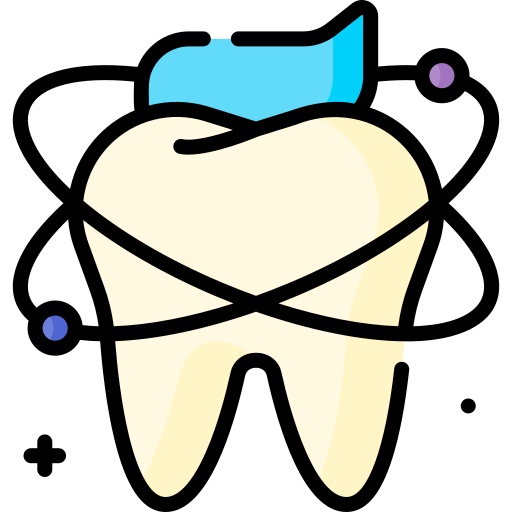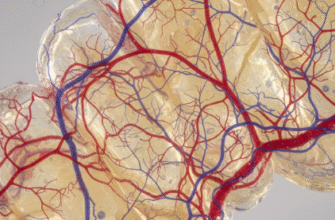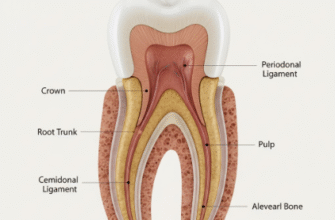It’s a common scenario: a slight twinge in a tooth, a bit of pink on your toothbrush. Many of us have been there, and the temptation to just wait and see if it goes away on its own can be strong. Life is busy, dental visits can seem like another chore, or perhaps there’s a touch of anxiety involved. However, turning a blind eye to these subtle signals from your mouth can unfortunately pave the way for a host of complications, transforming minor issues into significant challenges that affect not just your smile, but your overall comfort and even your wallet.
The Cascade Effect: How Small Problems Escalate
Think of a tiny crack in a windshield. Left unattended, everyday vibrations and temperature changes can cause it to spread, eventually compromising the entire structure. Dental problems often behave in a strikingly similar fashion. What starts as a seemingly insignificant issue can, over time, snowball into a much more complex and troublesome situation.
From Minor Annoyance to Major Pain
That little sensitivity to cold or sweetness? It might be the very early stage of a cavity. Ignored, this small breach in your tooth’s enamel allows bacteria to delve deeper. As the decay progresses, it moves closer to the tooth’s nerve, leading to more persistent and intense pain. What could have been a simple filling might now require more involved treatments. A dull ache that comes and goes could be a sign of a brewing infection or a cracked tooth. Pushing through the discomfort doesn’t make the underlying problem disappear; it simply allows it to become more entrenched and, often, far more painful to deal with later on. Suddenly, you’re not just dealing with a minor annoyance, but with throbbing pain that disrupts sleep, work, and your ability to enjoy meals.
Gum issues also follow this pattern. Mild gum inflammation, often signaled by redness or bleeding when brushing, is an early stage of gum disease. If not addressed through improved oral hygiene and professional care, it can advance. The gums may start to pull away from the teeth, forming pockets where more bacteria can accumulate. This can eventually lead to damage to the bone supporting your teeth, a far more serious condition that can ultimately result in tooth loss. The journey from a little bleeding to a loose tooth can be a slow, insidious one if warning signs are consistently overlooked.
The Financial Burden of Delay
It’s a simple truth: preventative or early-stage dental care is almost always less expensive than treating advanced problems. A routine check-up and cleaning, or a small filling, costs significantly less than procedures like root canals, crowns, dental implants, or extensive gum disease treatment. When you postpone addressing a dental concern, you’re not really saving money; you’re often just deferring a larger bill for a later date. The cost of neglect can accumulate rapidly. What might have been a manageable expense can balloon into a substantial financial burden, causing stress and potentially limiting treatment options due to cost. Consider the time investment as well: a simple filling might take one short appointment, while more complex procedures can require multiple visits and longer recovery times, meaning more time away from work or other responsibilities.
Beyond the Mouth: Wider Implications
The consequences of neglecting your oral health aren’t confined solely to your teeth and gums. Your mouth is the gateway to your body, and its condition can have ripple effects on your overall well-being and daily life in ways you might not immediately consider.
Impact on Nutrition and Digestion
Healthy teeth are essential for proper chewing. When you have painful teeth, missing teeth, or ill-fitting dentures due to neglected problems, your ability to chew food thoroughly can be compromised. You might start avoiding certain foods, particularly those that are harder to chew like fresh fruits, vegetables, and lean proteins. This can lead to a less varied and potentially less nutritious diet. Inadequate chewing also means that food isn’t broken down properly before it reaches your stomach, which can put an extra strain on your digestive system. Good digestion begins in the mouth, and dental problems can disrupt this crucial first step, potentially affecting nutrient absorption and overall digestive comfort.
Social and Confidence Factors
Our smiles are a huge part of how we communicate and interact with the world. Dental problems like persistent bad breath (halitosis), discolored teeth, visibly decayed teeth, or missing teeth can make individuals self-conscious. This can lead to a reluctance to smile, laugh freely, or engage in social situations. The fear of judgment or embarrassment can impact personal relationships, professional interactions, and overall self-esteem. Feeling good about your smile contributes significantly to your confidence, and ignoring dental issues that affect its appearance or freshness can slowly chip away at that confidence over time. The desire to hide your smile can become a subconscious habit, limiting your expressiveness and potentially affecting how others perceive you.
Important: Regular dental check-ups are not just about fixing problems; they are crucial for early detection. Many developing dental issues show no obvious symptoms in their initial stages, and a dental professional can spot them before they become painful or costly to treat.
The Unseen Dangers: Infections and Complications
While pain and cosmetic concerns are often the most noticeable consequences of ignoring dental problems, there are also less visible, but potentially more serious, risks to consider, particularly when infections take hold.
When Bacteria Spread
An untreated cavity is essentially an open door for bacteria. If decay reaches the pulp of the tooth, which contains nerves and blood vessels, it can lead to an infection known as an abscess. An abscess is a pocket of pus that can cause severe pain, swelling, and even fever. If this infection isn’t treated promptly, it can spread. The bacteria can travel to surrounding bone and soft tissues in the jaw and face. In rare but serious cases, a dental infection can spread to other parts of the body, potentially leading to more significant health complications. While this is not an everyday occurrence for most minor dental issues, it underscores the importance of treating infections at their source. Similarly, advanced gum disease involves a chronic bacterial infection that, if left unchecked, continuously challenges your body’s immune system.
Ignoring a broken tooth or a lost filling also creates an environment where bacteria can thrive. These openings can trap food particles and make cleaning difficult, accelerating decay and increasing the risk of infection. Even a seemingly stable problem can worsen quietly until it announces itself with acute symptoms.
Prevention and Proaction: The Smarter Path
The narrative around dental problems doesn’t have to be one of escalating pain and cost. By shifting the focus from reaction to proaction, you can significantly reduce your risk of facing major dental issues. This involves a commitment to good daily oral hygiene – brushing twice a day with fluoride toothpaste, flossing daily, and maintaining a balanced diet low in sugary snacks and drinks. These simple habits form the foundation of a healthy mouth.
However, home care alone isn’t always enough. Regular dental visits are paramount. These appointments allow a dental professional to perform thorough cleanings to remove plaque and tartar buildup that you can’t tackle on your own. More importantly, they provide an opportunity for early detection of potential problems. X-rays and a visual examination can reveal cavities, gum issues, or other concerns at a stage where they are far easier, less invasive, and less expensive to treat. Think of these visits as routine maintenance for one of your body’s most important assets. Addressing a tiny spot of decay with a small filling is infinitely preferable to waiting until you need a root canal or an extraction due to widespread infection or structural damage.
Don’t let fear or procrastination dictate your dental health. If you notice any changes in your mouth – sensitivity, bleeding gums, a chipped tooth, or persistent discomfort – schedule an appointment. Listening to your body’s early warning signs and seeking timely professional advice is the most effective way to keep your smile healthy, functional, and bright for years to come. The short-term inconvenience of a dental visit pales in comparison to the long-term consequences of neglect.








